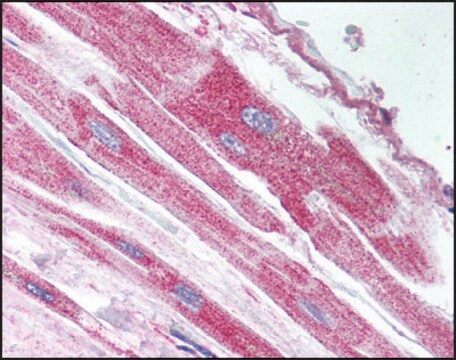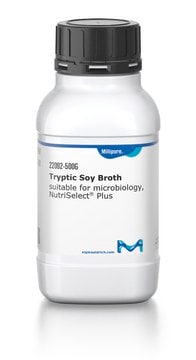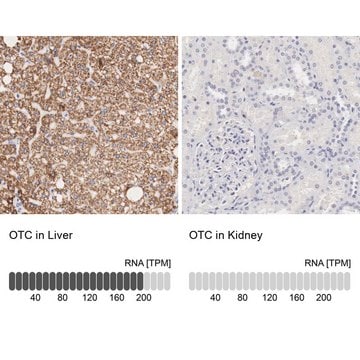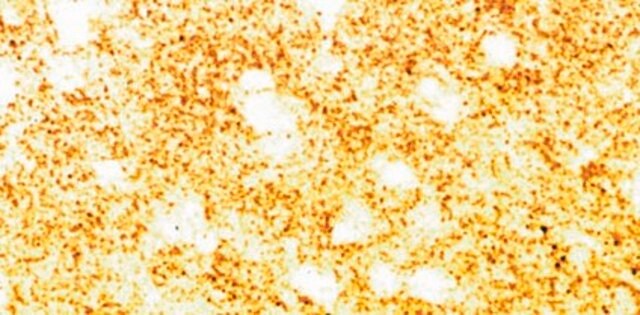SAB1407126
Anti-USP18 antibody produced in mouse
purified immunoglobulin, buffered aqueous solution
Synonyme(s) :
ISG43, UBP43
Sélectionner une taille de conditionnement
490,00 €
Date d'expédition estimée le16 avril 2025
Sélectionner une taille de conditionnement
About This Item
490,00 €
Date d'expédition estimée le16 avril 2025
Produits recommandés
Source biologique
mouse
Niveau de qualité
Conjugué
unconjugated
Forme d'anticorps
purified immunoglobulin
Type de produit anticorps
primary antibodies
Clone
polyclonal
Forme
buffered aqueous solution
Poids mol.
antigen ~43 kDa
Espèces réactives
human
Technique(s)
indirect immunofluorescence: suitable
western blot: 1 μg/mL
Numéro d'accès NCBI
Numéro d'accès UniProt
Conditions d'expédition
dry ice
Température de stockage
−20°C
Modification post-traductionnelle de la cible
unmodified
Informations sur le gène
human ... USP18(11274)
Description générale
Immunogène
Sequence
MSKAFGLLRQICQSILAESSQSPADLEEKKEEDSNMKREQPRERPRAWDYPHGLVGLHNIGQTCCLNSLIQVFVMNVDFTRILKRITVPRGADEQRRSVPFQMLLLLEKMQDSRQKAVRPLELAYCLQKCNVPLFVQHDAAQLYLKLWNLIKDQITDVHLVERLQALYTIRVKDSLICVDCAMESSRNSSMLTLPLSLFDVDSKPLKTLEDALHCFFQPRELSSKSKCFCENCGKKTRGKQVLKLTHLPQTLTIHLMRFSIRNSQTRKICHSLYFPQSLDFSQILPMKRESCDAEEQSGGQYELFAVIAHVGMADSGHYCVYIRNAVDGKWFCFNDSNICLVSWEDIQCTYGNPNYHWQETAYLLVYMKMEC
Actions biochimiques/physiologiques
Forme physique
Clause de non-responsabilité
Vous ne trouvez pas le bon produit ?
Essayez notre Outil de sélection de produits.
Code de la classe de stockage
10 - Combustible liquids
Classe de danger pour l'eau (WGK)
WGK 1
Point d'éclair (°F)
Not applicable
Point d'éclair (°C)
Not applicable
Faites votre choix parmi les versions les plus récentes :
Certificats d'analyse (COA)
Vous ne trouvez pas la bonne version ?
Si vous avez besoin d'une version particulière, vous pouvez rechercher un certificat spécifique par le numéro de lot.
Déjà en possession de ce produit ?
Retrouvez la documentation relative aux produits que vous avez récemment achetés dans la Bibliothèque de documents.
Filtres actifs
Notre équipe de scientifiques dispose d'une expérience dans tous les secteurs de la recherche, notamment en sciences de la vie, science des matériaux, synthèse chimique, chromatographie, analyse et dans de nombreux autres domaines..
Contacter notre Service technique







